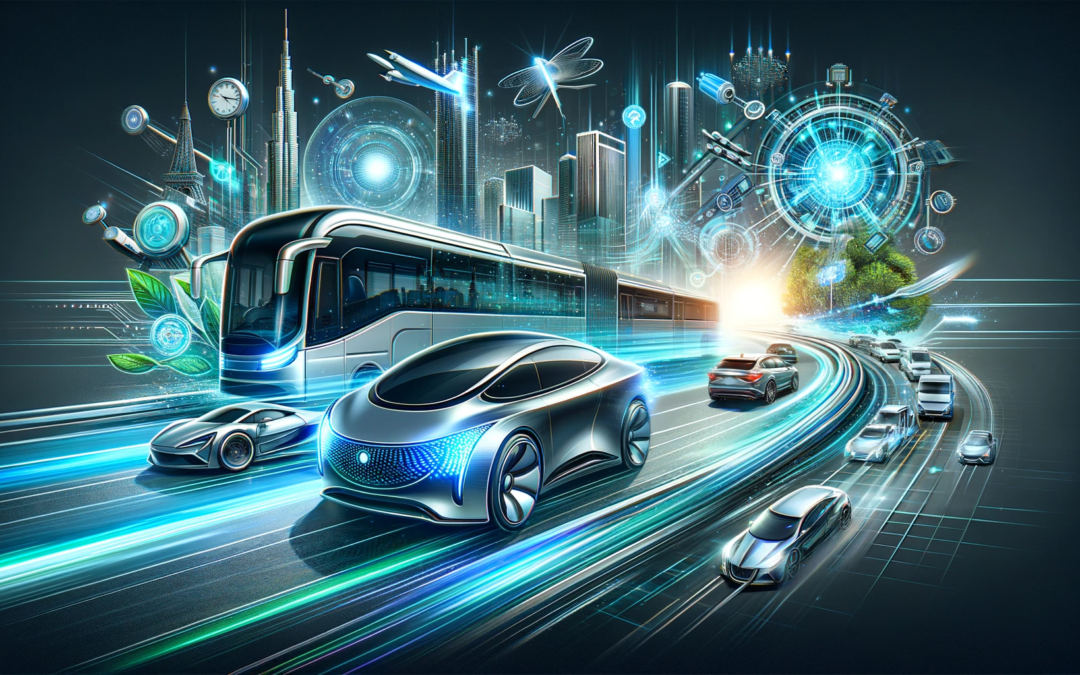Let’s face it, transportation and mobility have always been a bit of a headache. Whether it’s sitting in traffic during rush hour or dealing with the never-ending search for parking, getting from point A to point B has often been a frustrating experience. But fear not, because the rise of AI is here to save the day and revolutionize the way we travel.
AI in Autonomous Vehicles:
One of the most exciting applications of AI in transportation is the development of autonomous vehicles. These self-driving wonders are not only making our lives easier but also safer. With AI at the helm, autonomous vehicles can analyze vast amounts of data, react to changing road conditions, and make split-second decisions that can prevent accidents. From Tesla’s Autopilot to Waymo’s self-driving taxis, AI is driving us towards a future where the steering wheel becomes optional.
AI in Traffic Management and Urban Mobility:
But AI’s impact on transportation goes beyond autonomous vehicles. It’s also transforming the way we manage traffic and navigate urban environments. With AI-powered algorithms, traffic lights can be synchronized to optimize traffic flow, reducing congestion and travel times. Public transit systems can use AI to predict demand and adjust routes accordingly, ensuring that commuters reach their destinations faster and more efficiently. Cities like Singapore and London are already leveraging AI to tackle their traffic woes, paving the way for smarter and more sustainable urban mobility.
AI in Sustainable Transportation:
Speaking of sustainability, AI is playing a crucial role in promoting greener transportation solutions. By analyzing data on traffic patterns, weather conditions, and energy consumption, AI can optimize electric vehicle charging stations, making them more accessible and efficient. Additionally, AI can help with smart infrastructure planning, ensuring that bike lanes, electric vehicle charging stations, and public transit options are strategically placed to reduce carbon emissions and improve air quality. With AI as our co-pilot, we’re on the road to a cleaner and more sustainable future.
AI in Logistics and Supply Chain:
Transporting goods efficiently is another area where AI is making a significant impact. From predictive delivery routing to automated warehousing, AI is streamlining logistics and supply chain management. By analyzing data on consumer behavior, weather conditions, and road conditions, AI can optimize delivery routes, reducing costs and improving delivery times. The integration of AI in freight and commercial transport is enhancing efficiency and revolutionizing the way goods are moved around the world.
Challenges and Ethical Considerations:
Of course, with great power comes great responsibility. The integration of AI in transportation also brings its fair share of challenges and ethical considerations. Data privacy and security concerns are at the forefront, as AI relies heavily on collecting and analyzing vast amounts of data. Ensuring that this data is protected and used responsibly is paramount. Additionally, the impact of AI on employment is a topic of concern. As automation becomes more prevalent, it’s crucial to find ways to upskill and reskill the workforce to adapt to the changing job landscape.
The Future of AI in Transportation:
So, what does the future hold for AI in transportation? The possibilities are endless. As AI continues to evolve, we can expect even more advanced autonomous vehicles, smarter traffic management systems, and seamless integration of different modes of transportation. The question of how AI will shape the way we travel and move goods in the long run is both exciting and thought-provoking. Will we one day see flying autonomous taxis or hyperloop systems that transport us at supersonic speeds? Only time will tell.
Engaging with the Audience:
We want to hear from you! Have you had any experiences with AI-driven transportation technologies? What are your thoughts on the potential benefits and challenges of integrating AI into transportation systems? Join the conversation and share your insights and opinions.
Conclusion:
AI is transforming transportation and mobility as we know it. From autonomous vehicles to optimized traffic management systems, AI is paving the way for smarter, safer, and more sustainable mobility solutions. As we embrace this technological revolution, it’s crucial to strike a balance between advancement and ethical considerations. By harnessing the power of AI responsibly, we can create a future where transportation is not only efficient but also environmentally friendly and inclusive.
Visual Elements:
Check out these images and infographics showcasing the incredible impact of AI on transforming transportation and mobility:
Remember, the future of transportation is on the move, and AI is driving us towards a better tomorrow!










